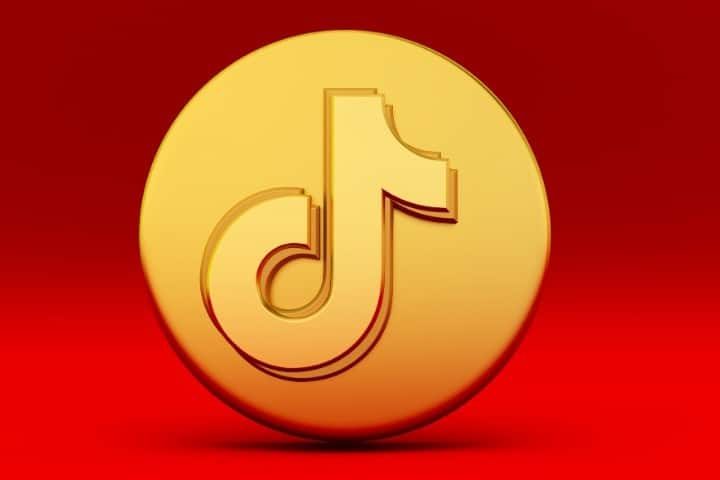
SINGAPORE — Chinese social media company TikTok could be banned from the European Union (EU) if it does not increase efforts to adhere to EU legislation before September this year, the top official in charge of the EU’s internal market told the company’s CEO.
TikTok needs to align its business with the EU’s Digital Services Act (DSA) well before the deadline of Sept. 1, European Commissioner Thierry Breton told Shou Zi Chew, based on an EU readout of a video call between the two. “We will not hesitate to adopt the full scope of sanctions to protect our citizens if audits do not show full compliance,” Breton warned.
In response, TikTok said that it was committed to the DSA, and showcased attempts to adhere to other EU legislation such as GDPR data protection rules and a code of practice on disinformation. “The safety of our users is paramount,” Caroline Greer, TikTok’s director of public policy and government relations, stated in a tweet.
The short-video app, owned by Chinese technology conglomerate ByteDance, has for the last three years tried to address U.S. fears over whether the personal data of its citizens can be obtained and its content manipulated by the Chinese Communist Party (CCP) or any other entity under the CCP’s influence.
“With younger audiences comes greater responsibility. It is not acceptable that behind seemingly fun and harmless features, it takes users seconds to access harmful and sometimes even life-threatening content,” Breton said. “The DSA includes dissuasive sanctions including a ban in the EU in case of repeated serious breaches threatening the life or safety of people.”
Additionally, the DSA mandates online platforms to step up efforts to monitor the internet for illegal content, failing which platforms could face fines of up to six percent of yearly global turnover.
TikTok’s Chew visited Brussels last week to meet regulators, including EU antitrust chief Margrethe Vestager, amid efforts to assure the EU that it would adhere to its stricter tech rules and commitments to privacy and child safety.
French President Emmanuel Macron has been the highest-profile European leader to criticize the social platform. At a mental-health event in December last year, Macron lambasted TikTok as “the most disruptive” social media outlet for young people, cautioning that it was “deceptively innocent” and addictive.
“We remain vigilant in any situation that would lead to a compromise in the protection of our citizens’ data,” Jean-Noel Barrot, France’s Minister for Digital Transition and Telecommunications, told CBS News, elaborating that he meets “on a regular basis” with TikTok managers in France to talk about “data protection issues and content moderation and protection of minors.”
German Member of the European Parliament Moritz Körner has been lobbying EU regulators to tighten controls on TikTok for years. “From a geopolitical perspective, the EU’s inactivity towards TikTok has been naïve,” he told CBS News. “The data dragon TikTok must be placed under the surveillance of the European authorities.”
He added that the EU has been slow to enforce regulations on the platform, positing that Tiktok “poses several unacceptable risks” for users, including “data access by Chinese authorities, censorship and the tracking of journalists.” Public outrage at the company increased following its admission that some of its employees improperly used the TikTok user data of two journalists to attempt to identify the source of information leaks to the media.
Maximilian Funke-Kaiser, a spokesman for Germany’s liberal FDP party, toldCBS News that TikTok has been guilty of “systematic data misuse” and claimed that security concerns about the app are “justified.” “To be clear: If you do business here and earn a lot of money with it, you must also comply with applicable law. Otherwise, there is no room for the company here,” he said.
He said measures taken by the U.S. government to forbid the platform for employee use were something that should be also implemented in Germany. “I consider the ban on TikTok on working equipment of officials of the U.S. government to be appropriate in view of the data protection and security risks.”
Addressing the worries articulated by European officials, a TikTok spokesperson told CBS News that the company had reacted to the ban in the U.S. by merging “a comprehensive package of measures with layers of government and independent oversight to ensure that there are no backdoors into TikTok that could be used to manipulate the platform…. These measures go beyond what any peer company is doing today on security.”
Yet, the comprehensive EU data protection laws that already exist could pose a bigger challenge for TikTok staff.
The firm is presently the target of two investigations by Ireland’s data protection regulator over transfers of user data to China that may violate the country’s laws, as well as possible breaches of children’s privacy.
TikTok may also undergo a direct audit and face fines of up to six percent of its annual revenue under the EU’s new Digital Services Act, if the audit concludes that TikTok failed to adhere to that law.
High-level European policy chiefs had stern words of caution for TikTok’s CEO.
“I count on TikTok to fully execute its commitments to go the extra mile in respecting EU law and regaining trust of European regulators. There cannot be any doubt that data of users in Europe are safe and not exposed to illegal access from third-country authorities,” European Commission Vice President for Values and Transparency Věra Jourová told the media after the meeting.
A TikTok spokesperson told CBS News that the company has a “clear plan that we’re already implementing to reassure our community that they can trust us with their data…. This includes storing European user data in our data center operations in Ireland, starting this year; further reducing employee access to data; and minimizing data flows outside of Europe.”
Tiktok has a complicated relationship with China’s communist government. Its parent company ByteDance is based in Beijing, and although the company has dismissed allegations that it shared user data with Chinese authorities, it acknowledged in a policy review last November that Chinese employees could be given “remote access” to European user data.
That revelation gave rise to concerns that the communist regime in Beijing could legally coerce ByteDance to submit any user data that the company is privy to. As China’s ruling Communist Party has total control over all business conducted on the country’s soil without any accountability, such fears are not entirely unfounded.
After all, ByteDance gathers a considerable amount of data through TikTok and other digital properties. Based on the company’s own privacy policy, TikTok garners the names of users, passwords, phone numbers, private messages on the app, the mobile networks used by its users, their contacts, satellite location information, and payment details such as credit card information.
Körner thinks that it is about time that European lawmakers try to regulate the video sharing app even more by implementing existing laws. “TikTok’s success is the result of a European policy failure,” he told CBS News. “Europe must finally wake up…. If TikTok refuses to abide by EU laws, it should be banned.”


